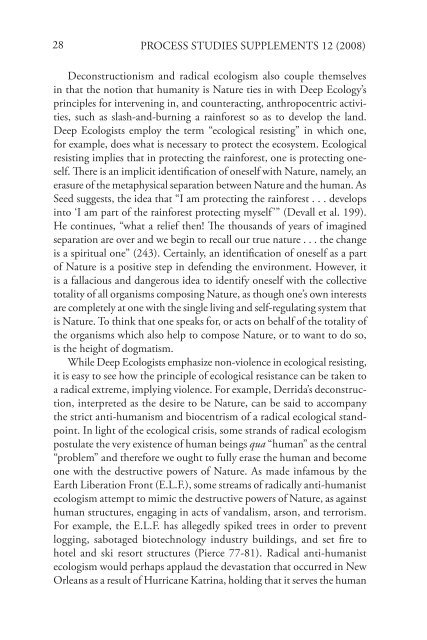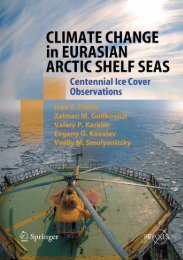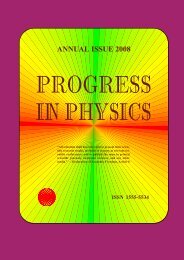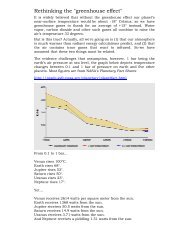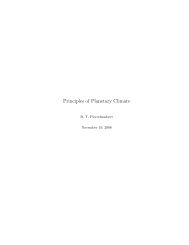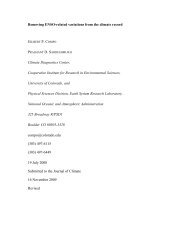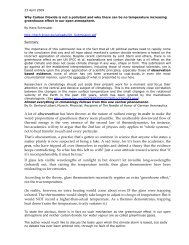Process Studies Supplement Overcoming Anthropocentric ... - Here
Process Studies Supplement Overcoming Anthropocentric ... - Here
Process Studies Supplement Overcoming Anthropocentric ... - Here
You also want an ePaper? Increase the reach of your titles
YUMPU automatically turns print PDFs into web optimized ePapers that Google loves.
28<br />
PROCESS STUDIES SUPPLEMENTS 12 (2008)<br />
Deconstructionism and radical ecologism also couple themselves<br />
in that the notion that humanity is Nature ties in with Deep Ecology’s<br />
principles for intervening in, and counteracting, anthropocentric activities,<br />
such as slash-and-burning a rainforest so as to develop the land.<br />
Deep Ecologists employ the term “ecological resisting” in which one,<br />
for example, does what is necessary to protect the ecosystem. Ecological<br />
resisting implies that in protecting the rainforest, one is protecting oneself.<br />
There is an implicit identification of oneself with Nature, namely, an<br />
erasure of the metaphysical separation between Nature and the human. As<br />
Seed suggests, the idea that “I am protecting the rainforest . . . develops<br />
into ‘I am part of the rainforest protecting myself’” (Devall et al. 199).<br />
He continues, “what a relief then! The thousands of years of imagined<br />
separation are over and we begin to recall our true nature . . . the change<br />
is a spiritual one” (243). Certainly, an identification of oneself as a part<br />
of Nature is a positive step in defending the environment. However, it<br />
is a fallacious and dangerous idea to identify oneself with the collective<br />
totality of all organisms composing Nature, as though one’s own interests<br />
are completely at one with the single living and self-regulating system that<br />
is Nature. To think that one speaks for, or acts on behalf of the totality of<br />
the organisms which also help to compose Nature, or to want to do so,<br />
is the height of dogmatism.<br />
While Deep Ecologists emphasize non-violence in ecological resisting,<br />
it is easy to see how the principle of ecological resistance can be taken to<br />
a radical extreme, implying violence. For example, Derrida’s deconstruction,<br />
interpreted as the desire to be Nature, can be said to accompany<br />
the strict anti-humanism and biocentrism of a radical ecological standpoint.<br />
In light of the ecological crisis, some strands of radical ecologism<br />
postulate the very existence of human beings qua “human” as the central<br />
“problem” and therefore we ought to fully erase the human and become<br />
one with the destructive powers of Nature. As made infamous by the<br />
Earth Liberation Front (E.L.F.), some streams of radically anti-humanist<br />
ecologism attempt to mimic the destructive powers of Nature, as against<br />
human structures, engaging in acts of vandalism, arson, and terrorism.<br />
For example, the E.L.F. has allegedly spiked trees in order to prevent<br />
logging, sabotaged biotechnology industry buildings, and set fire to<br />
hotel and ski resort structures (Pierce 77-81). Radical anti-humanist<br />
ecologism would perhaps applaud the devastation that occurred in New<br />
Orleans as a result of Hurricane Katrina, holding that it serves the human


